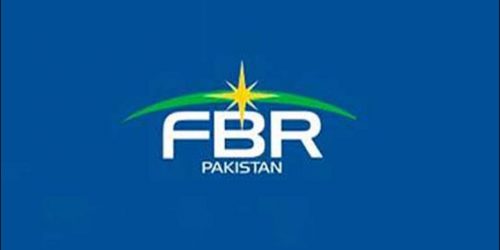ISLAMABAD: A private member bill introduced in the Upper House of the Parliament on Monday sought to amend the law to “enhance the functions and utility” of the Federal Board of Revenue’s (FBR’s) Policy Board. During the Senate session presided over by Chairman Sadiq Sanjrani, Kauda Babar, an independent senator from Balochistan, introduced the Federal Board of Revenue (Amendment) Bill, 2020 which was referred to the relevant standing committee.
“The Policy Board of Federal Board of Revenue was conceived as an apex forum for the provision of policy guidance to FBR to ensure that this organization shall be able to pursue its objectives and vision to be a modern, progressive, effective, autonomous and credible organization. However, despite the lapse of substantive time, the utility and effectiveness remain dismal which is mainly due to the non-holding of the meetings of Policy Board and absence of any clear-cut functions,” the bill reads. It proposes amendments in the Federal Board of Revenue Act 2007 to enhance the utility and functions of the FBR Policy Board. Earlier this month, Kauda Babar had stepped down as Member of the FBR Policy Board in protest of the attitude of FBR officials against not summoning the meeting of the Policy Board and had written a letter to the chairman Senate against the FBR’s top management. The chairman has referred the matter to Senate Standing Committee on Rules of Procedure and Privileges.
Speaking on the floor of the House, Mustafa Nawaz Khokhar from Pakistan People’s Party (PPP) said, “I am surprised to learn that FBR Policy Board has not met even once. The FBR imposes taxes on the people of Pakistan on the directions of IMF (International Monetary Fund). FBR Policy Board is the only forum that has public representatives to keep a check on the functions of FBR and make sure that FBR’s policies are in public interest. The Policy Board has been rendered ineffective which speaks volumes of the state of affairs the FBR is presently in,” he said.
The chairman Senate then consulted Minister of State for Parliamentary Affairs Ali Muhammad Khan whether the bill should be referred to the relevant committee. “The way everything is being referred to the committees, I am afraid, the committees would be overburdened like the roads of Karachi-inundated with rain water,” the minister replied. However, the chairman referred the bill to the standing committee concerned.
The House also discussed the issue of increase of circular debt beyond Rs 1660 billion. Federal Minister for Energy Omar Ayub Khan briefed the House about the steps being taken to address the issue of circular debt. The present government has increased energy revenue up to Rs121 billion and set a target of generating 100,000 megawatts electricity by 2047, he said. The minister accused the previous governments of Pakistan Muslim League Nawaz (PML-N) and PPP on the issue of circular debt and the debacle of power sector. The National Commission on Rights of Child (Amendment) Bill 2020 introduced by Faisal Javed Khan from Pakistan Tehreek-e-Insaf (PTI), The Islamabad High Court (Amendment) Bill 2020 introduced by Javed Abbasi from PML-N and The Domestic Violence (Prevention and Protection) Bill 2020 introduced by Sherry Rehman from PPP were referred to the standing committees concerned.
Unanimous resolution lauding the services and struggle of veteran leader from Indian Occupied Kashmir (IOK) Syed Ali Shah Gilani was passed by the House. The House also discussed the US-Taliban peace deal in Afghanistan with particular reference to its impacts on Pakistan and the region.
Leader of the House in Senate Dr Shahzad Waseem said people of Pakistan and Afghanistan have always been closely tied by religion and culture in all times and phases of history from soviet attack to 9/11. “Over time, many theories of strategic importance were presented but now all stakeholders including the United States have accepted that there is no solution to the Afghan problem other than talks and Pakistan’s stand has been acknowledged and appreciated worldwide.” He said that Pakistan will be one of the biggest beneficiaries of peace in Afghanistan being the biggest trade partner of Afghanistan. He said that CPEC (China Pakistan Economic Corridor) being the closest deep sea port for Central Asian Republics will also act as an impetus to open those countries for trade. Commenting on a recently published United Nations report, he said that the report not only talks about ISIS (Islamic State of Iraq and Syria) presence in Afghanistan but also calls India the epicenter of terrorism in the region and how India is aiming at destabilizing the region. The Senate also discussed the need for establishment of a constitutional court and the options for enhancing current setup of the Supreme Court of Pakistan. The House will now meet again on Wednesday.





